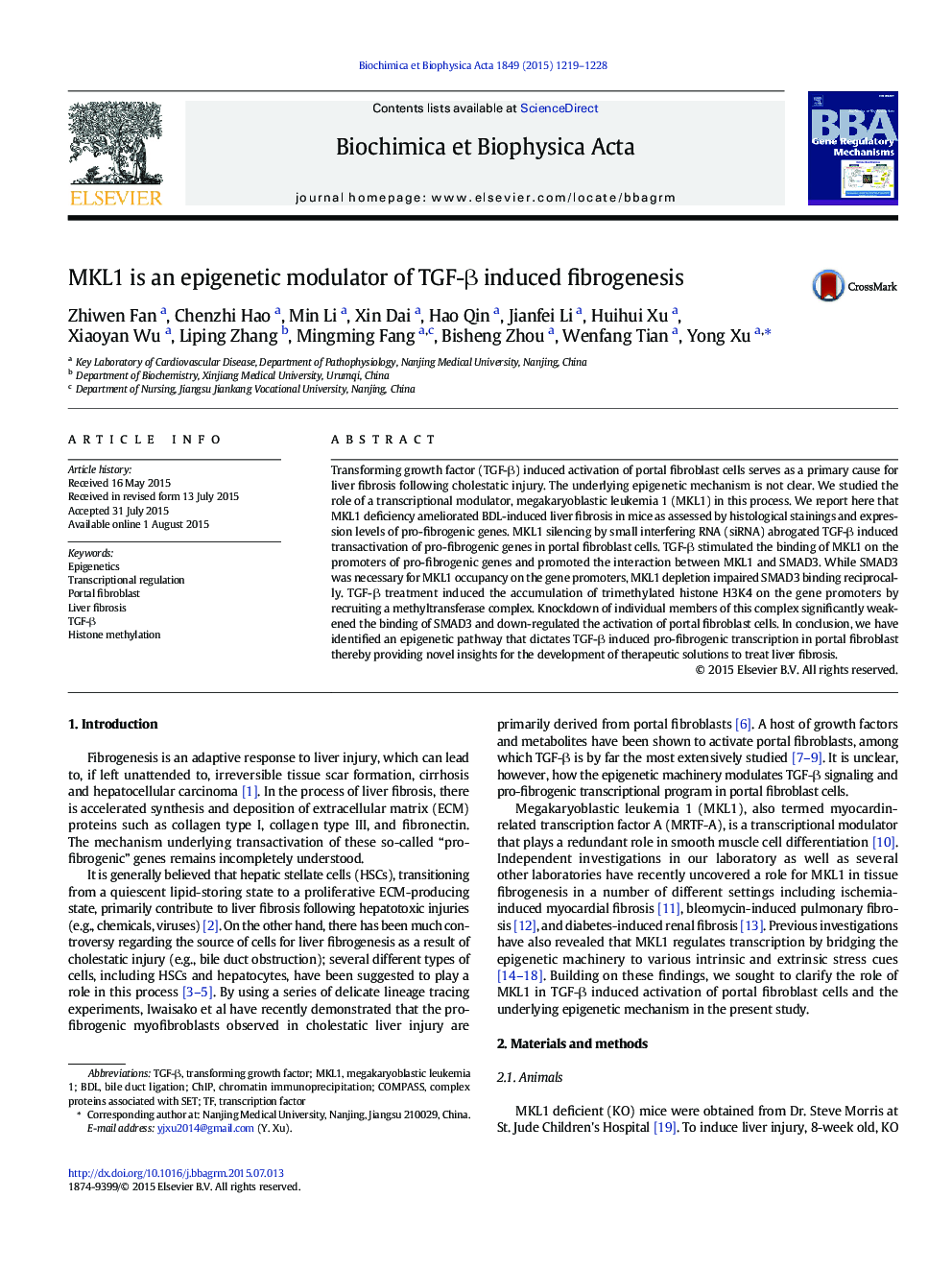| Article ID | Journal | Published Year | Pages | File Type |
|---|---|---|---|---|
| 10799007 | Biochimica et Biophysica Acta (BBA) - Gene Regulatory Mechanisms | 2015 | 10 Pages |
Abstract
Transforming growth factor (TGF-β) induced activation of portal fibroblast cells serves as a primary cause for liver fibrosis following cholestatic injury. The underlying epigenetic mechanism is not clear. We studied the role of a transcriptional modulator, megakaryoblastic leukemia 1 (MKL1) in this process. We report here that MKL1 deficiency ameliorated BDL-induced liver fibrosis in mice as assessed by histological stainings and expression levels of pro-fibrogenic genes. MKL1 silencing by small interfering RNA (siRNA) abrogated TGF-β induced transactivation of pro-fibrogenic genes in portal fibroblast cells. TGF-β stimulated the binding of MKL1 on the promoters of pro-fibrogenic genes and promoted the interaction between MKL1 and SMAD3. While SMAD3 was necessary for MKL1 occupancy on the gene promoters, MKL1 depletion impaired SMAD3 binding reciprocally. TGF-β treatment induced the accumulation of trimethylated histone H3K4 on the gene promoters by recruiting a methyltransferase complex. Knockdown of individual members of this complex significantly weakened the binding of SMAD3 and down-regulated the activation of portal fibroblast cells. In conclusion, we have identified an epigenetic pathway that dictates TGF-β induced pro-fibrogenic transcription in portal fibroblast thereby providing novel insights for the development of therapeutic solutions to treat liver fibrosis.
Keywords
Related Topics
Life Sciences
Biochemistry, Genetics and Molecular Biology
Biochemistry
Authors
Zhiwen Fan, Chenzhi Hao, Min Li, Xin Dai, Hao Qin, Jianfei Li, Huihui Xu, Xiaoyan Wu, Liping Zhang, Mingming Fang, Bisheng Zhou, Wenfang Tian, Yong Xu,
